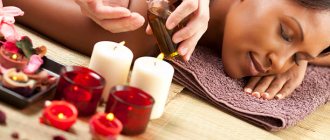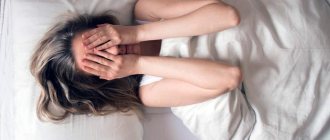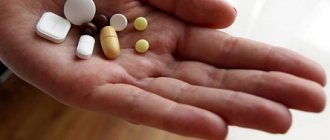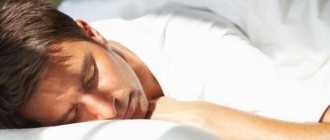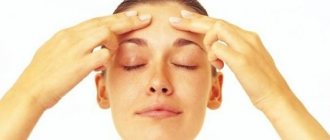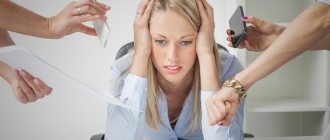27.01.2021
In old age, healthy sleep means a lot; an old person needs balanced rest, a comfortable sleeping place and a normal daily routine. However, as practice shows, many pensioners stay awake at night, suffer from insomnia or do not get enough sleep due to psychological disorders. The reasons for this condition can be varied - stress experienced the day before, pain that worsens at night, or specific diseases that should be treated by specialists.
Causes of sleep disorders in the elderly
At night, many older people experience a feeling of anxiety and restlessness, succumb to internal experiences, analyze their day, feel sorry for themselves, and remember their untimely departed friends and relatives. All this affects the quality of rest - old people fall asleep for a long time, often wake up and sometimes even walk at night, staying in the “kingdom of Morpheus”.
Insomnia can be caused by:
- incorrect daily routine - often retirement leads to the fact that a person stops following his usual schedule, goes to bed late and is in no hurry to get up in the morning;
- lack of physical activity - old people simply do not expend accumulated energy and do not have time to get tired;
- diseases accompanied by pain - chronic pain, neurological diseases, pathologies of the cardiovascular system prevent a pensioner from sleeping if they are not treated;
- depression – problems that accumulate like a lump, leading to chronic lack of sleep;
- long-term use of sleeping pills – long-term therapy with sedative medications does not make them effective, reduces their effectiveness and triggers the opposite effect;
- conditions that require improvement - unsuitable humidity, temperature, lighting, uncomfortable mattress, too warm or cold blanket, high pillow negatively affects the comfort of the sleeping person;
- life's troubles, stress, unpleasant events do not allow you to relax and fall asleep quickly;
- high blood pressure, snoring, tachycardia, poor cerebral circulation and other somatic diseases in people over 60 years of age negatively affect the quality of rest of an elderly patient;
- senile dementia, Parkinson's disease, Alzheimer's disease, etc.
It is difficult to fall asleep after a heavy dinner; insomnia often accompanies those who do not go to bed on an empty stomach. Contrary to the popular belief that alcohol accompanies relaxation, drinking alcohol excites the nervous system and interferes with proper rest in old age.
Honey for insomnia
This product is the most delicious and harmless sleeping pill for those who are not allergic to it. Honey-based products have sedative properties, causing drowsiness within half an hour after administration. Traditional ways of using beekeeping products to normalize sleep:
- Honey tea. Before going to bed, drink a cup of warm water with a spoonful of honey dissolved in it.
- Insomnia mixture. Combine 200 g of honey with 3 tsp. apple cider vinegar. Eat a dessert spoon of this folk remedy every evening. This remedy, in addition to the main effect, will ensure the normalization of the stomach and intestines.
- Honey-lemon water. Finely chop half the citrus, mix with 1 tbsp. l. honey, mix thoroughly. Combine the mixture with Borjomi mineral water. Take sweet syrup in the morning.
- Honey-nut remedy. Juice of 3 lemons, 2 tbsp. l. beekeeping product and 2 tbsp. l. chopped walnuts, mix well. Take the mass 1 tbsp. l. half an hour before bedtime.
- Brine drink and compress. Dissolve a spoonful of sage honey in a glass of cucumber pickle and take the remedy at night. At the same time, you should put a compress of grated horseradish root with honey on the calf muscles - this will promote the flow of blood from the brain to the legs and induce drowsiness.
Symptoms of sleep disorders in the elderly
Therapy for insomnia is based on combating the symptoms of the disease, which requires careful diagnosis; drugs are selected based on an analysis of the general condition of the elderly patient. The disorder at a respectable age is manifested by the following symptoms:
- difficulties falling asleep, which you have to struggle with periodically;
- increased frequency of unpleasant dreams that make you wake up in a cold sweat with a feeling of fear, powerlessness, regret, accompanied by a rapid heartbeat;
- rest has become superficial, you often wake up at night, sleep lightly, are distracted by the slightest movement or rustle;
- waking up too early, inability to fall asleep again;
- You have to fight the signs of fatigue even after a full 8-hour rest.
Depending on the course of the disease and its symptoms, two types of insomnia are distinguished: transient - often caused by stress, recovery occurs on its own within 7-14 days; chronic – problems become regular, sleep disorders persist for more than 4 weeks; specific therapy is required to recover.
Causes of sleep disturbances in old age
There are many causes of the pathological condition. The most common diagnosis of sleep disorders in the elderly is heart failure. Pathology can develop with a variety of diseases of the endocrine system. Frequent causes of such disorders are depression and change of place of residence.
Sleep disturbances in old age are diagnosed with bronchial asthma, which is accompanied by nocturnal attacks. The causes of sleep disorders may include somatic diseases. The pathological condition is diagnosed by nervous excitability.
Forms of manifestation of insomnia
Insomnia affects the quality of life, makes a person irritable, nervous, and leads to serious psychological disorders. It is customary to distinguish three forms of unhealthy condition:
- Insomnia. The pathology is characterized by the inability to fall asleep, even if you manage to forget yourself, the rest is short and restless. Usually the condition is caused by psychological stress; eliminating the root causes leads to normalization of the daily routine. A psychotherapist should treat such patients.
- Hypersomnia. Unlike insomnia, a patient suffering from hypersomnia needs a long rest - from 12 to 22 hours. Even after almost a day's stay in bed, the feeling of vigor does not occur, the patient is unable to regain strength, looks tired, suffers from nervous excitement, or, on the contrary, looks disoriented and confused. The disease is diagnosed in people living in conditions of constant stress.
- Parasomnia. Sleep disorders occur in separate phases; a person has to get out of bed several times a night, often in a sleepy state. The cause of the painful condition is epilepsy, sleepwalking, urinary incontinence, phobias, pain during erection in men.
Based on the diagnosed form, appropriate therapy is selected, which is designed to normalize the daily routine of the elderly patient.
Traditional methods of treatment
Unlike traditional medicines, “grandmother’s” methods have no contraindications or side effects, are accessible to everyone and do not require large financial expenditures. Elderly people often resort to well-known recipes from the people:
- Valerian root. An effective, safe plant that has a pronounced calming and sedative effect. In accordance with the instructions, you should take the tincture or tablets for several weeks, since the active substance has a cumulative effect. However, some reviews say that the drug immediately relieves symptoms and makes it possible to sleep well on the first night after taking it. To mask the specific taste of valerian, it is recommended to drink the tablet form or take a tincture with mint essence to give the drink a more pleasant taste.
- A glass of milk at night. Grandma's old method is an effective way to set the body up for rest. The effectiveness of the method lies in the amino acid tryptophan, which is part of milk. The component helps the brain launch processes that switch the body into sleep mode. If you are not a big fan of milk or don’t want to drink liquid before going to bed, try eating some legumes, white meat chicken, and cottage cheese for dinner.
- Chamomile tea. Chamomile decoction is widely used in the treatment of insomnia and improving psychological well-being throughout the world. To enhance the effect, you can add a few drops of essential chamomile oil to your evening bath to overcome frustration, relax and tune in to the right atmosphere. It is recommended to drink herbal tea no more than 3 times a day; if desired, you can add honey to the drink.
In addition to traditional desktop activities that require the presence of two or more participants, old people are often carried away by their computer counterparts. Based on the results of recent studies, retirees enjoy spending time on the computer, mastering social networks, popular computer applications and simulators. Particularly popular among old people are “adventure games”, toys for logic, quick reaction and simple strategies. In this case, the computer allows you to maintain mental health, develop intellectual abilities, and prevent the occurrence of diseases of the nervous system. You can download any application to your computer; you can find free versions or inexpensive computer games.
The following herbal components are designed to combat sleep disorders: lemon balm, mint, lemongrass, parsnip, lavender, oregano, creeping thyme, sage, hops, celery root and others. Aromatherapy relieves sleep disorders. Inhaling the aroma of lavender or rose promotes relaxation; just drop a few drops on your pillow, light an aroma lamp, or fill your bedroom with the scent of incense sticks. In addition, reading a book in bed, meditation, and even calling a friend or close relative will help restore your routine.
Prevention
To eliminate such a pathological process as insomnia in older people, it is necessary to follow certain instructions that contribute to the rapid normalization of sleep:
- It is better to have dinner at least 3 hours before going to bed;
- you need to balance the menu and saturate it with “light” foods (porridge, dairy products, fresh fruits and berries);
- take daily evening walks in the fresh air;
- Avoid drinking caffeine-containing drinks and strongly brewed tea;
- exclude watching TV at night, limit your time at the computer;
- stick to a daily routine, fall asleep and wake up according to a schedule;
- Ventilate the living space at night.
Sleep disturbances and daytime sleepiness are not natural during the aging period. Insomnia and the constant use of sedative medications are considered factors that provoke deterioration in work ability, increased morbidity and mortality among the elderly. It is necessary to treat insomnia with folk remedies after preliminary consultation with a specialist. He will give instructions regarding manufacture, use, duration of the therapeutic course and compatibility with various drugs.
Choosing the right insomnia remedy for an elderly person
There are medications whose action is aimed at correcting such disorders; they should be taken only with a prescription and the recommendation of a doctor. If a person suffers from insomnia, cannot fall asleep on his own, suffers from nightmares, or does not get enough sleep even after a long rest, the doctor prescribes adaptogens containing melatonin to patients.
To combat the symptoms of senile insomnia, you will need to take medications with a pronounced anti-anxiety effect. If an elderly person suffers from individual intolerance or one of the components causes an allergic reaction, the doctor prescribes non-benzodiazepine benzodiazepine receptor agonists, which do not affect the respiratory system and are not prone to accumulation. Psychotherapists often prescribe herbal remedies for older people to normalize rest and wakefulness: “Persen”, “Sedasen”, “Novo-Passit”, “Motherwort”, etc.
Combination drugs containing phenobarbital have a good effect for treating insomnia in pensioners. A group of medications is recommended to be taken for insomnia in particularly severe cases, accompanied by increased nervous excitability. Long-term use of these medications is fraught with addiction, negatively affects the general condition, and aggravates problems with falling asleep.
Medicines with nootropic effects - “Glycised”, “Glycine” - are good for senile insomnia. Effective remedies for insomnia normalize brain function and relieve irritability. It is strictly forbidden to combine the use of sleeping pills with alcohol and antihistamines. Carelessness can lead to urination problems, headaches, tachycardia and more serious side effects.
Folk remedies
These are significantly safer ways to treat insomnia from all angles. One of the best options is honey.
The following recipes should be recommended:
- a tablespoon of honey and a spoon of Borjomi, finely chop the lemon, mix, take in the morning before breakfast;
- two spoons of honey and walnuts, a little lemon juice, mix everything again, but drink at night;
- if it’s difficult or you just don’t like it, dissolve one spoon of honey in 200 milligrams of warm water and let the elderly person drink it at night.
There are other folk methods:
- sometimes insomnia occurs due to blood rushing to the head - it makes sense to try applying a little grated horseradish to it;
- mix honey with apple cider vinegar - a teaspoon at a time, a double dose is acceptable;
- mix thirty grams of motherwort and peppermint, twenty grams of valerian roots and hops. Take ten grams of the resulting mixture, pour boiling water and heat for fifteen minutes, cool, strain, add boiled water. When drinking an infusion of one hundred milliliters day and night, the sleep disturbance will most likely end quite quickly;
- mix valerian roots, three-leaf watch and peppermint, pour one tablespoon with boiling water, leave for half an hour, drink half a glass three times a day;
- mix in mint, motherwort, mistletoe, valerian roots, hawthorn flowers. Pour hot water, leave for half an hour, drink one hundred milliliters before bed and the next morning;
- take two tablespoons of blood-red hawthorn, pour 300 milliliters of boiling water, consume three times a day thirty minutes before meals;
- boil a tablespoon of crushed blood-red elderberry roots in 200 milliliters of boiling water, cook for fifteen minutes, remove from heat, keep for half an hour, take a tablespoon periodically;
- pour two hundred milliliters of water into one tablespoon of valerian roots, crushed in advance, leave to stand for eight hours, then you need to strain the infusion, drink one tablespoon at a time - before bed, after sleep, in the middle of the day.
These are not all recipes, but among the ones given above there will probably be something suitable.
